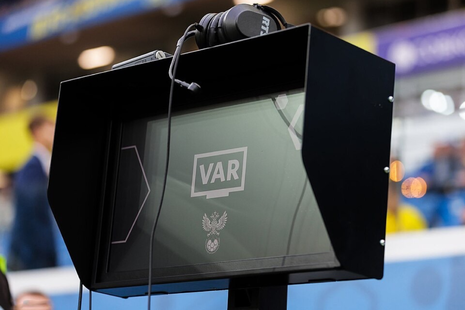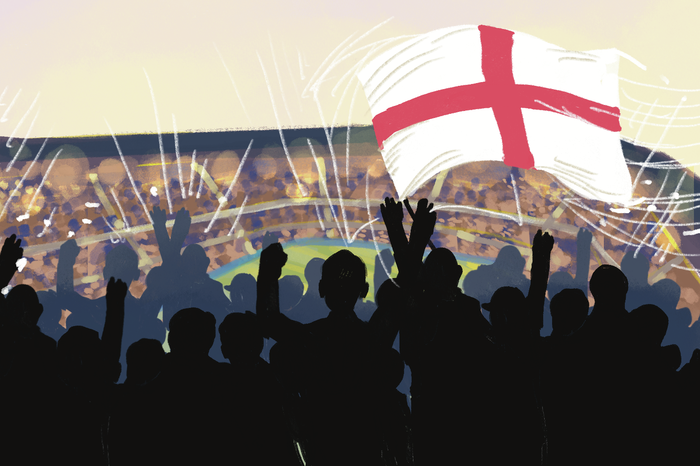VAR-y bad idea: why sport needs to hit the off switch on AI
Ben Lubitsh argues that the AI takeover in controversial sport decision-making should be reversed

The so-called ‘AI takeover’ has sought to extend across all walks of life, its primary purpose being do the things humans can’t, or to do them better. Its recent introduction into sport has been controversial pretty much ever since it was enforced – because the omnipotent machines don’t seem so perfect when they get things wrong. So what is it that’s going so badly with this particular manifestation of the AI takeover, and why is it time to finally give it up?
Our attitude towards high-tech machinery is at the heart of the problem. The bar is not just excellence, but perfection. The theoretical beauty of a world governed by robots, we seem to think, is that they kill the plague that is human error. And in a way, we can’t be blamed; when advancements accelerate as much as they have done, flawless operation becomes the norm, and human involvement becomes both unnecessary and unwanted.
“The bar is not just excellence, but perfection”
This attitude towards AI doesn’t cause as obvious of a problem in other fields because such fields require the objectivity that AI can offer and humans can’t. Yet in an entertainment industry that inherently relies on largely subjective and interpretive judgements, the search for objectivity is one that hinders more than it helps.
That point might not make much sense now, but it becomes a lot clearer when it’s made alongside an example. Take the machine that has driven almost every football fan into a frenzy over the past few years – VAR. Why is it so upsetting when VAR decisions are admitted to be mistaken retrospectively? It’s because it makes little sense to us that several minutes of disruption by state of the art technology can both ruin the suspense of a decision and also get it wrong.
Can’t we just play the usual AI game, we might ask, and wait until the machines get better? No, is the answer. Because the machines lack the theoretical capability to improve in the way that we want them to. Even if they get quicker, more efficient, their ability to be accurate cannot be enhanced. Sporting rules, in most cases, contain too much ambiguity, subjectivity, and room for human interpretation to justify AI judgements ever being fundamentally better than human ones.
“human error seeps in through the gaps of the AI blockade”
How about sports that are less obviously subjective? Surely there is room for AI in at least some endeavours within the field. A few major tennis competitions, for example, have scrapped human line judges altogether. This appears a more appealing use of AI, given its purpose in this context is to measure where a ball lands and determine – objectively – whether it falls inside or outside the court.
The problem here is that the plague is too strong – human error, that is, seeps in through the gaps of the AI blockade. At this year’s Wimbledon Championships, three calls in one game were missed by the electronic line-calling system because the machinery was turned off in error. Further problems in regard to delayed line calls came in some of the competitions that followed.
This is actually quite a neat way of articulating why AI is, and always will be, inherently problematic – even in sports that require some sort of objective judgement. The bar for satisfaction is perfection. No harm done if things work – but when they inevitably slip up, the mistakes are unforgivable. Not unforgivable because they’re awful mistakes, but because they signify the breaking of a promise that the machines made – the promise to do things better than us.
Humans have a part to play somewhere. Either in manhandling the machinery that dictates the decisions, or simply in making the decisions themselves. Both of those things are susceptible to the plague of human error, so we have to think which one we would prefer to live with. I’d put money on most fans settling for a lower bar for accuracy if it meant that they could avoid the monthly outrage at so-called ‘perfect’ machines and their head-scratching imperfections.
Put simply, then, the point is this: human referees will forever make mistakes, and they may even be worse than those made by AI. But the sporting community is under mutual agreement that the former is forgivable, whilst the latter is not. I suggest we start seriously considering the embrace of human error – and that means putting an end to the AI takeover in sport.
 News / Judge Business School advisor resigns over Epstein and Andrew links18 February 2026
News / Judge Business School advisor resigns over Epstein and Andrew links18 February 2026 News / Hundreds of Cambridge academics demand vote on fate of vet course20 February 2026
News / Hundreds of Cambridge academics demand vote on fate of vet course20 February 2026 News / Petition demands University reverse decision on vegan menu20 February 2026
News / Petition demands University reverse decision on vegan menu20 February 2026 News / CUCA members attend Reform rally in London20 February 2026
News / CUCA members attend Reform rally in London20 February 2026 News / Gov grants £36m to Cambridge supercomputer17 February 2026
News / Gov grants £36m to Cambridge supercomputer17 February 2026










